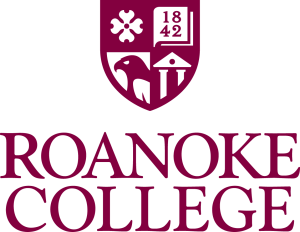 Poll from Roanoke College: a still-early look at the likely November gubernatorial matchup, Democrat Abigail Spanberger leads Republican Winsome Earle-Sears by 43%-26%, according to the Roanoke College Poll. The Institute for Policy and Opinion Research (IPOR) at Roanoke College interviewed 658 Virginia residents between May 12 and May 19, 2025. The survey has a weighted margin of error of 5.25%.
Poll from Roanoke College: a still-early look at the likely November gubernatorial matchup, Democrat Abigail Spanberger leads Republican Winsome Earle-Sears by 43%-26%, according to the Roanoke College Poll. The Institute for Policy and Opinion Research (IPOR) at Roanoke College interviewed 658 Virginia residents between May 12 and May 19, 2025. The survey has a weighted margin of error of 5.25%.
More than a quarter (28%) of registered voters are undecided, and 3% said they would vote for someone else. These results are within the margin of error of the February poll. Regarding favorable/unfavorable ratings, about one in five doesn’t know enough about either candidate to have an opinion about them.
Job Approval, Favorable/Unfavorable, and Directions of Virginia and Nation
For the first time in eight years of polling, a majority (51%) thinks things in Virginia have gotten off on the wrong track, while two-thirds (66%) say the same about the country. President Donald Trump’s job disapproval rating (65%) is the worst it has been, including during his first term, while his 31% approval rating is low, but not his worst. Gov. Glenn Youngkin’s job approval rating (46%) is his lowest and down seven points from November.
Youngkin’s unfavorable rating (44% favorable/50% unfavorable) is also his worst showing, while Trump’s is close to his most negative (33% favorable/64% unfavorable). Spanberger’s rating (41% favorable/40% unfavorable) is similar to November, while Earle-Sears’ numbers have fallen in that time (32% favorable/48% unfavorable), with about one-fifth of respondents not offering an opinion. Mark Warner, whose U.S. Senate seat is up for election in 2026, comes in at 51% favorable, about where he stood five years ago. While the Democratic Party is not seen in a positive light (51% unfavorable), the Republican Party fares even worse (63% unfavorable). All these questions show significant partisan differences (see topline).
Billboard homepage hero image.
The Roanoke College Poll is funded by Roanoke College as a public service.
Political Anxiety and Politics
The overall index of 89.41 is up 13 points since November 2024. While that increase is minimal, it masks significant changes within political parties. Democrats jumped from -10.39 in May 2024 to 101.77 in November 2024, and their current anxiety index stands at 153.35. During the same period, Republicans dropped from 166.59 (May) to 13.52 (November), and are now at -30.10. Political anxiety is closely tied to party control of the White House and Congress.
Most respondents trust the government in Washington to do what is right only sometimes (62%) or never (24%), but a slight majority (52%) thinks that ordinary citizens can influence the federal government. Most Virginians (62%) think their side has been losing more than winning on important issues. A plurality (43%) of those polled is dissatisfied with how the federal government is working, and 31% are angry, which is the highest measure of anger in the eight years we have been asking it. Half (50%) now think the country’s best years are behind us, but 48% think the best years lie ahead.
Democrats have become much more pessimistic about the federal government, while Republicans are more positive. The greatest party differences on the questions that comprise the index can be seen in “winning more than losing,” “dissatisfied/angry with how government is working,” and “best years ahead.” Those results can be found in the crosstabs at the conclusion of the topline.
A large majority (84%) of Virginians see the nation as divided regarding the important issues facing it. More than half (56%) think the federal government makes their life worse, as opposed to the 40% who think the government makes their life better.
Deficit/Debt
The Roanoke College Poll also examined perceptions of the national debt and annual deficit. A large majority of Virginians say they are very concerned (42%) or somewhat concerned (40%) about the deficit and debt. A majority thinks the deficit is a result of spending too much (61%) versus not raising enough money in taxes (34%).
Asked to make choices to address the issues, the largest group favors raising taxes for those making more than $400,000 annually (74%), but 82% oppose raising taxes for everyone. A large majority (71%) likewise oppose across-the-board spending cuts. More than half (56%) oppose cutting programs other than defense, Social Security, and Medicare; 55% oppose cutting defense; and 73% oppose significantly modifying Social Security and Medicare to save money. If forced to choose an option that would impact them or their family, 29% would prefer increased taxes, 28% picked fewer services, and 15% boldly chose both. More than a quarter (27%) picked neither because they think the debt and deficit aren’t that big of a problem.



